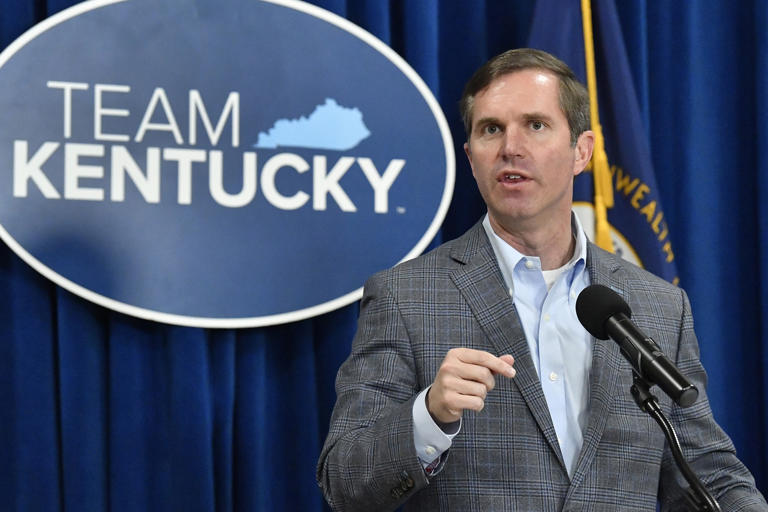Kentucky Governor, Juneteenth Holiday, Hairstyle Discrimination, Andy Beshear, Black Kentuckians, Executive Order, State Holiday, Cultural Hairstyles, Equal Rights, Inclusion
Kentucky Governor Andy Beshear designates Juneteenth as a holiday for state executive branch workers and bans discrimination based on hairstyles. These executive orders reflect his commitment to equality and support for Black Kentuckians, promoting cultural inclusivity and addressing historical injustices.
Kentucky Governor Andy Beshear made significant strides in promoting equality and diversity within the state by designating Juneteenth as a holiday for state executive branch workers and banning discrimination based on hairstyles. These actions, executed through two separate executive orders, highlight the governor’s commitment to addressing systemic issues affecting Black Kentuckians, even as legislative efforts on these fronts have stalled.

The executive orders come after failed attempts to pass similar legislation in the Republican-majority state legislature. Governor Beshear, a Democrat and rising star in his party, decided to act unilaterally to ensure these important measures were implemented. “After years of inaction, I’ve decided I can no longer wait for others to do what is right,” Beshear stated during the signing ceremony at the state Capitol in Frankfort, where he was joined by Black lawmakers.
Juneteenth: A New State Holiday
Juneteenth commemorates June 19, 1865, when enslaved people in Galveston, Texas, were informed of their freedom, two years after the Emancipation Proclamation. The day has long been celebrated by Black Americans as a symbol of emancipation and progress. In 2021, President Joe Biden signed legislation making Juneteenth a federal holiday. Following suit, Governor Beshear declared that Juneteenth would be a holiday for state executive branch employees starting this year, closing all executive branch offices in observance.
Beshear emphasized that Juneteenth is both a celebration and a reminder of the ongoing struggle for equality. “This is an important day in our history as Americans,” he said. “One where we stand united in acknowledging our past and our nation’s greatest injustice. A day when we honor the strength and courage of African-Americans and the contributions they have made and continue to make for our country.”
State Senator Gerald Neal, the top-ranking Democrat in the Kentucky Senate and a Black lawmaker, had introduced legislation to make Juneteenth a state holiday. Although the bill did not progress in the last legislative session, Neal pledged to reintroduce it in 2025.
Protecting Cultural Hairstyles
The second executive order signed by Beshear addresses discrimination based on hairstyles. It expands protections in state hiring and employment by prohibiting discrimination against traits historically associated with race, such as natural hair texture and protective hairstyles like braids, locks, and twists. This measure aims to create a more inclusive and diverse workplace within the state government.
Governor Beshear noted the importance of these protections, stating that Kentucky’s workforce is enriched by its diversity. “That’s what makes us special,” he said. Previous attempts to pass similar protections in the state legislature had failed, underscoring the significance of this executive action.
Melinda Wofford, a graduate of the Governor’s Minority Management Trainee Program and assistant director at the Kentucky Transportation Cabinet, praised the governor’s order. “Acknowledging cultural uniqueness is a strength, which provides peace in the world, where everyone should feel comfortable and confident in reaching their full potential without fear of having to remove their crown,” Wofford said.
A Legacy of Advocacy
Governor Beshear’s actions are part of a broader effort to support the Black community in Kentucky. In March, he joined other Kentuckians in a march commemorating the 60th anniversary of a landmark civil rights rally led by Martin Luther King Jr. The march retraced the steps of King and 10,000 others who participated in the 1964 March on Frankfort, which called for legislation to end discrimination and segregation in the state.
Beshear has also included Black executives in his administration and has a record of supporting historically Black colleges and universities (HBCUs) in Kentucky. His administration has worked to expand healthcare and economic opportunities in minority neighborhoods, further demonstrating his commitment to equity and justice.
Challenges and Future Prospects
While Governor Beshear’s executive orders mark important progress, they also highlight the challenges of enacting broader legislative changes in a politically divided state. The lack of movement on Juneteenth and hairstyle discrimination bills in the Republican-controlled legislature underscores the partisan divides that can impede progress on social justice issues.
Nevertheless, Beshear’s actions set a precedent and offer a blueprint for future efforts. By taking executive action, he has not only provided immediate protections and recognition but also laid the groundwork for future legislative successes. His leadership on these issues may inspire other states to follow suit, furthering the cause of equality and inclusion nationwide.
In conclusion, Governor Andy Beshear’s designation of Juneteenth as a state holiday and his ban on hairstyle discrimination represent significant steps towards addressing historical and systemic inequities in Kentucky. These actions reflect a commitment to honoring the past while building a more inclusive and just future. As Kentucky continues to grapple with these issues, Beshear’s leadership offers a beacon of hope and a call to action for continued progress.
Read More-